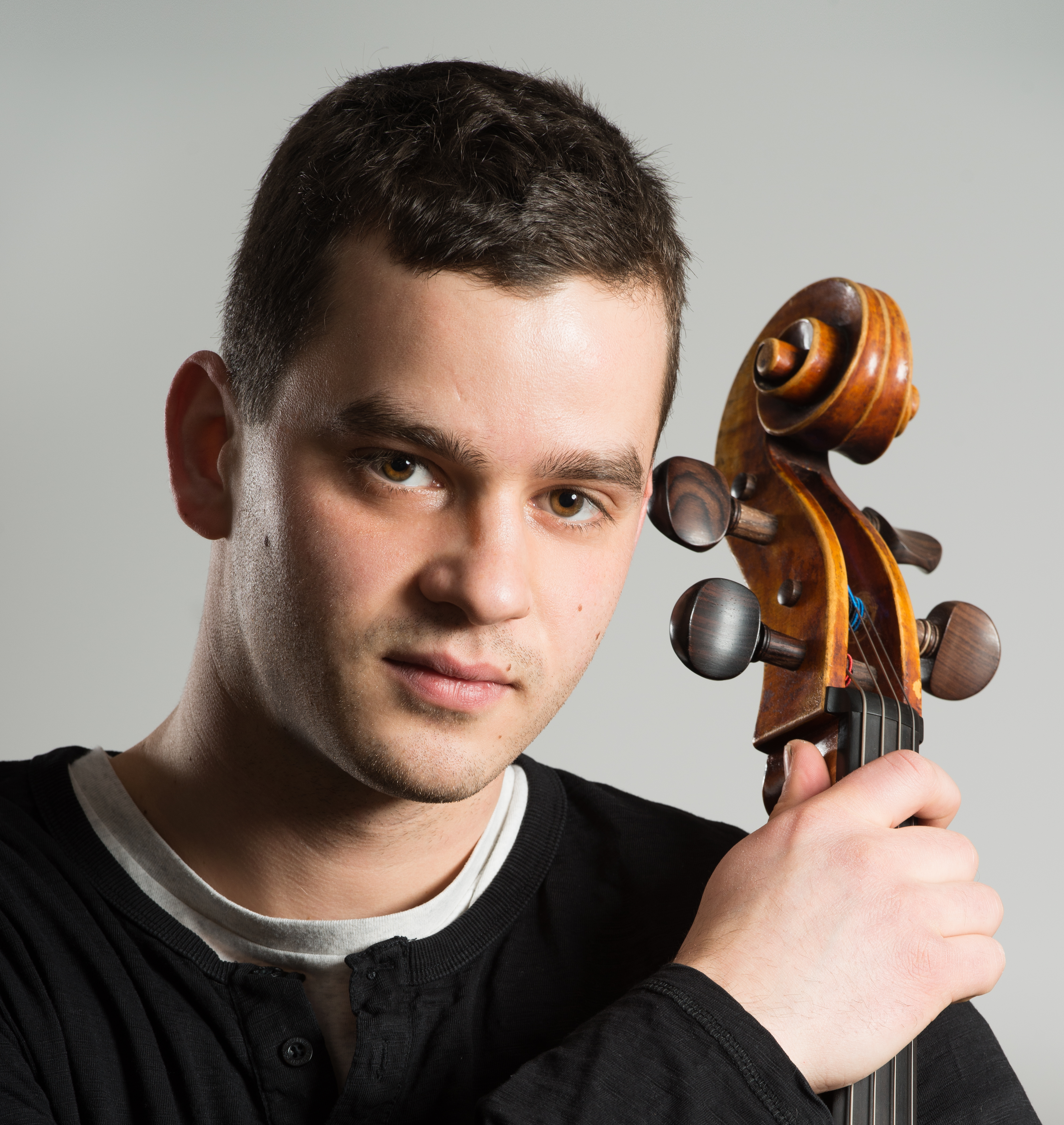Beethoven | Dvořák | Elgar
18 January 2020, 7 p.m.
Witold Lutosławski Concert Studio of the Polish Radio, Warsaw
Performers:
Marcel Markowski – cello
Jerzy Semkow Polish Sinfonia Iuventus Orchestra
Marek Wroniszewski – conductor
Programme:
Ludwig van Beethoven – Coriolan Overture, op. 62
Edward Elgar – Cello Concerto in E minor, op. 85
Antonin Dvořák – Symphony No 7 in D minor, op. 70

fot. Serwis Orkiestry Sinfonia Varsovia
General Gaius Marcius Coriolanus was a symbolic character of particular importance for ancient Romans, going back to the mythical origins of the City. A conqueror of the Volsci, he eventually defected to the enemy after a conflict with the tribunes and invaded Rome. At the brink of his victory, his mother, joined by his wife, ventured outside the city walls to ask him the famous question: ‘Suffer me to learn, before I accept your embrace, whether I have come to an enemy or a son’? This was when conscience forced Coriolanus to abandon his treason, which led to his death at the hands of the deceived Volsci. His story inspired may works of painting and literature, including the famous play by Shakespeare. In 1804, another tragedy based on Gaius Marcius’ story was written by a now-forgotten Austrian playwright, Heinrich Joseph von Collin. It is for his version that an overture was composed in 1807 by Ludwig van Beethoven. The structure of a two-theme allegro enabled rendering the dramatic tension between the rebellious attitude of Coriolanus (morose and menacing theme I in C minor) and pleadings of the two women (mellow, ‘conciliatory’ theme II in E-flat major).
Antonin Dvořák’s Symphony No 7 in D minor, op. 70, was written for the Royal Philharmonic Society in London (1885), which highly appreciated the Czech composer’s skills. Saturated with heroic end elegiac ambiance, its Part I was subtitled ‘From the sad years’, which might have been a reference to a recent death of Dvořák’s mother, but also to the misery of the Czech nation, whose ever-stronger independence ambitions were suppressed by the country’s Austrian occupants. After an atmospheric slow part, starting with a beautiful clarinet solo, there is a characteristic spectacular scherzo in the rhythm of a vivacious minor-scale waltz. The national element comes fully to the fore in the final part, which in its dramatic nature may be perceived as an allegory of struggle. In some commentators’ views, the Seventh is even regarded as Dvořák’s finest work of this kind, his orchestral mastery and individual style characteristics at their fullest. While eventually the Ninth (‘From the New World’) was the one to achieve the greatest popularity, the Seventh has belonged to the canon of neo-romantic symphonic music ever since its premiere.
After World War I, the neo-romantic idiom of Edward Elgar’s music began to be perceived as somewhat played-out and the performances of his new works were received with little enthusiasm, which led Elgar to withdraw from the mainstream of musical life after his beloved wife, Alice, died in 1920. The Cello Concerto in E minor is a proof of this unjust désintéressement. Unbelievably, what is one of the core pieces of the present-day repertoire and one of the author’s most popular works nowadays, was a failure at its premiere and would only be performed sporadically afterwards. Many years had to pass until justice was done to this unfairly forgotten masterpiece in an inspired record by the young Jacqueline du Pré (1965). This elegiac work was influenced by traumatic experience of the great war. Challenging on the technical level, it does not, however, dazzle the audience with its virtuosity, but rather amazes one with the richness of its thematic invention, its unique harmonic colour, and above all, with the depth of its emotional message. Under the baton of Marek Wroniszewski, it will be performed by a talented young cellist, Marcel Markowski. He has been a member of the Sinfonia Varsovia orchestra since 2012, currently as the leader of the cello section. He has also had many solo performances with outstanding conductors, published a number of valued records, and won several awards in prestigious competitions. [By Piotr Maculewicz]
